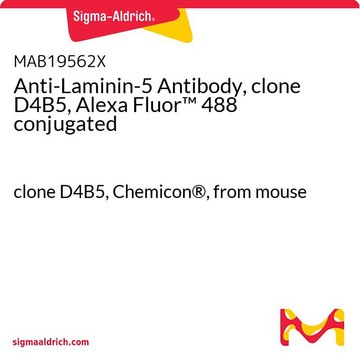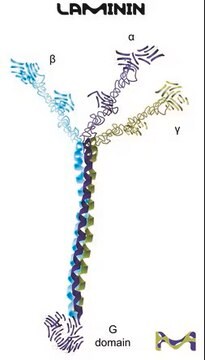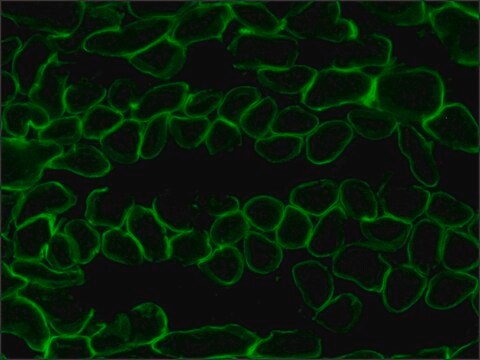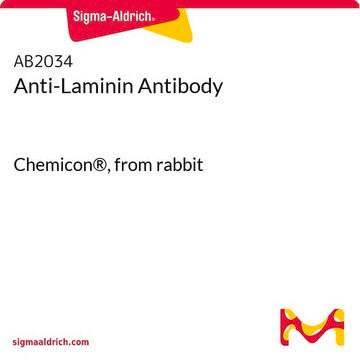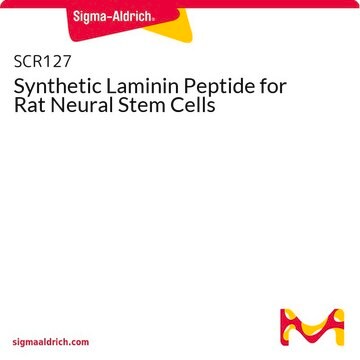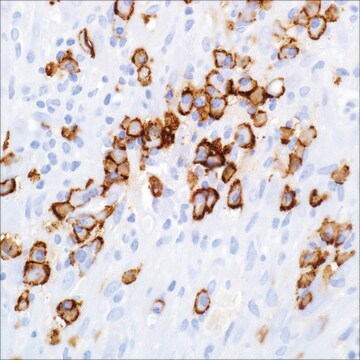ABC934
Anti-Laminin Receptor Antibody
from rabbit, purified by affinity chromatography
Synonym(s):
40S ribosomal protein SA, 37 kDa laminin receptor precursor, 37/67 kDa laminin receptor, 37LRP, 67 kDa laminin receptor, 67LR, Colon carcinoma laminin-binding protein, Laminin-binding protein precursor p40, LamR, LBP/p40, LRP/LR, Laminin receptor 1, Mult
About This Item
WB
western blot: suitable
Recommended Products
biological source
rabbit
Quality Level
antibody form
affinity isolated antibody
antibody product type
primary antibodies
clone
polyclonal
purified by
affinity chromatography
species reactivity
human, mouse
species reactivity (predicted by homology)
zebrafish (based on 100% sequence homology), bovine (based on 100% sequence homology), rat (based on 100% sequence homology), Xenopus (based on 100% sequence homology), porcine (based on 100% sequence homology)
technique(s)
immunocytochemistry: suitable
western blot: suitable
NCBI accession no.
UniProt accession no.
shipped in
wet ice
target post-translational modification
unmodified
Gene Information
human ... RPSA(3921)
General description
Specificity
Immunogen
Application
Apoptosis & Cancer
Adhesion (CAMs)
Immunocytochemistry Analysis: A 1:250 dilution from a representative lot detected laminin receptor in A431, HeLa, HepG2, and NIH/3T3 cells.
Quality
Western Blotting Analysis: 1 µg/mL of this antibody detected laminin receptor in 10 µg of HeLa cell lysate.
Target description
Physical form
Storage and Stability
Other Notes
Disclaimer
Not finding the right product?
Try our Product Selector Tool.
Storage Class Code
12 - Non Combustible Liquids
WGK
WGK 1
Certificates of Analysis (COA)
Search for Certificates of Analysis (COA) by entering the products Lot/Batch Number. Lot and Batch Numbers can be found on a product’s label following the words ‘Lot’ or ‘Batch’.
Already Own This Product?
Find documentation for the products that you have recently purchased in the Document Library.
Our team of scientists has experience in all areas of research including Life Science, Material Science, Chemical Synthesis, Chromatography, Analytical and many others.
Contact Technical Service

